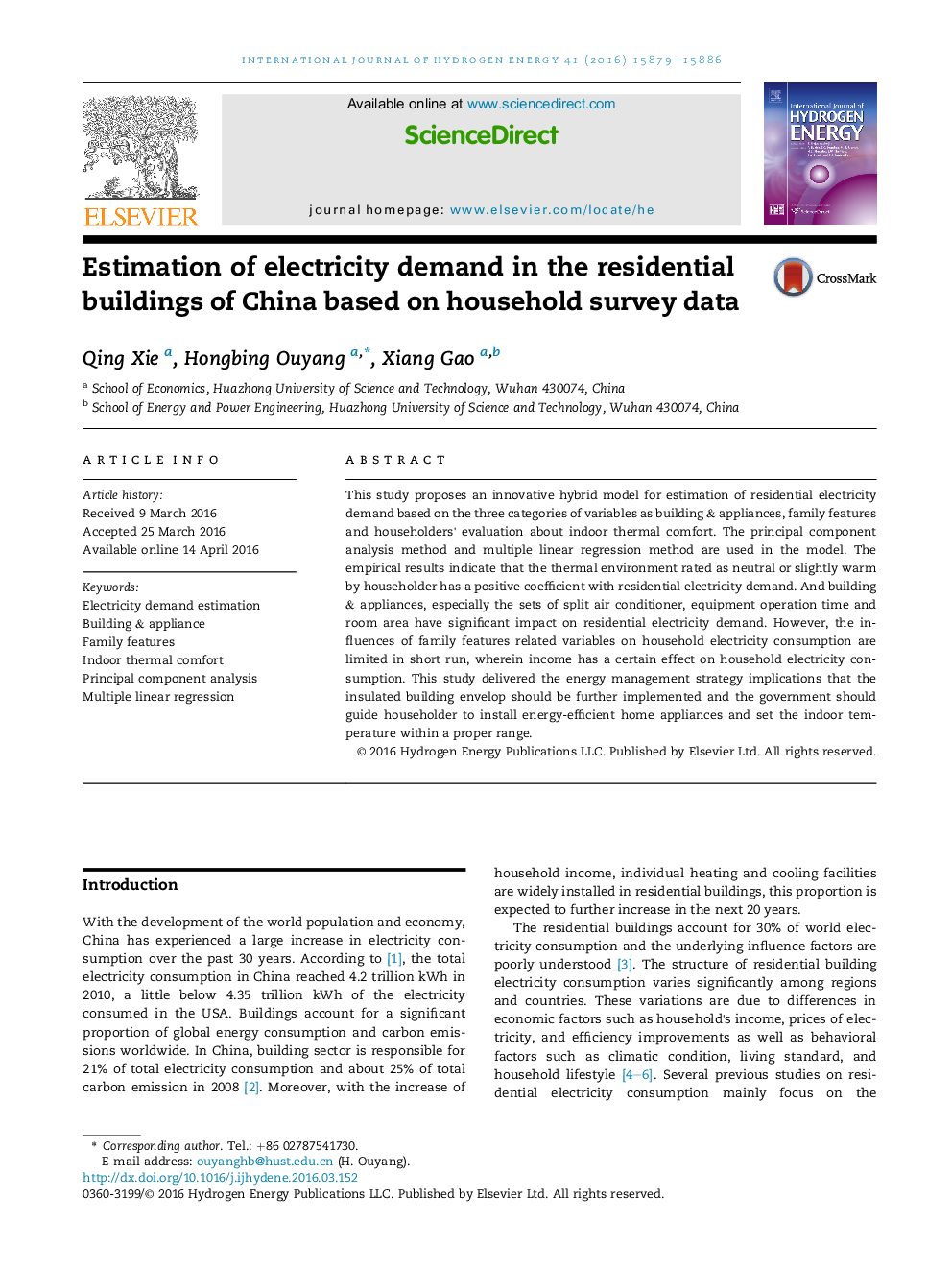| Article ID | Journal | Published Year | Pages | File Type |
|---|---|---|---|---|
| 1270316 | International Journal of Hydrogen Energy | 2016 | 8 Pages |
•A field survey was conducted for the electricity demand estimation and analysis.•A comprehensive multi-variables model based on principal component analysis is established.•Building & appliance, family features and thermal comfort are first considered in electricity demand.•Energy policy implications on building envelop, appliances and indoor air temperature are proposed.
This study proposes an innovative hybrid model for estimation of residential electricity demand based on the three categories of variables as building & appliances, family features and householders' evaluation about indoor thermal comfort. The principal component analysis method and multiple linear regression method are used in the model. The empirical results indicate that the thermal environment rated as neutral or slightly warm by householder has a positive coefficient with residential electricity demand. And building & appliances, especially the sets of split air conditioner, equipment operation time and room area have significant impact on residential electricity demand. However, the influences of family features related variables on household electricity consumption are limited in short run, wherein income has a certain effect on household electricity consumption. This study delivered the energy management strategy implications that the insulated building envelop should be further implemented and the government should guide householder to install energy-efficient home appliances and set the indoor temperature within a proper range.
